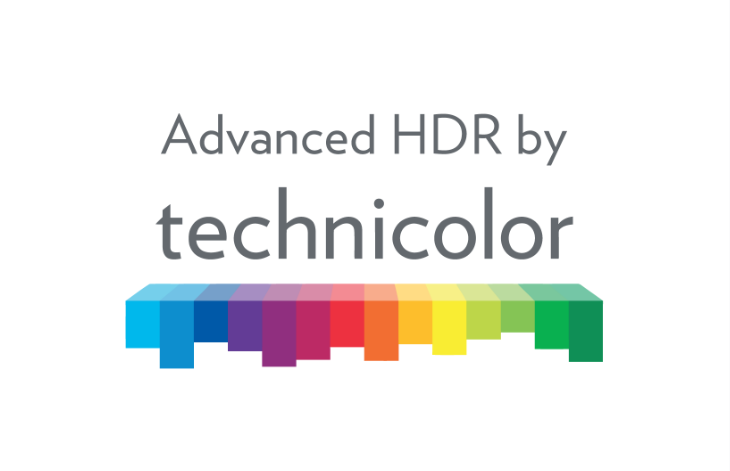LAS VEGAS - April 17, 2023 - PRLog -- NAB 2023 – As the entertainment technology community gathers in Las Vegas to see the latest innovations that are driving innovations and enhanced experiences for consumers, high dynamic range (HDR) is rapidly becoming an operational requirement for broadcasters and over-the-top (OTT) streaming service providers, according to Rick Dumont, Head of Business Development for HDR and Wireless at Phillips.
"HDR is on track to achieve a critical mass of market penetration over the next few years as technical standards mature and key players throughout the content creation, capture, distribution and consumption ecosystem optimize and integrate their go-to-market processes," says Rick Dumont, Head of Business Development for HDR and Wireless at Phillips, in a podcast interview for journalists.
However, to continue the momentum HDR is enjoying, the value chain responsible for bringing this enhanced viewing experience will have to expose more consumers to enhanced experiences by integrating this critical technology into current and emerging offerings.
"We tend to assume that consumers know what HDR is, but the reality is that many consumers need to understand the differences between high definition and high dynamic range. This is one of the biggest challenges the market faces today," says Dumont.
With the exception of the excellent progress made by the Sinclair Broadcast Group in the United States, there is still limited high dynamic range content available on broadcast stations today.
"This is unfortunate because once people experience HDR, they immediately appreciate how a brighter image can deliver much more detail on the screen, resulting in a superior viewing experience," he says.
As a result, it will be necessary for the entire industry to work together to streamline the integration of HDR technologies into their production and distribution processes. The whole ecosystem must also work together to ensure a consistent and persistent message to consumers explaining the unique value proposition of HDR.
"We are reaching a critical mass of consumers with high-definition TVs equipped with HDR capabilities. The next step is ensuring that HDR content is made available and that consumers are aware of the significant improvements the entire industry is making to enhance the viewing experience. That will drive the second and third waves of consumer adoption," Dumont says.
Ecosystem for HDR is Maturing
The good news, according to Dumont, is that momentum behind HDR is picking up steam, especially around Advanced HDR by Technicolor solutions, with chipset manufacturers, TV makers, content owners and distribution players coordinating efforts to expand the availability of HDR content.
"The system on chip (SoC) community is critical in providing the primary processing capabilities needed to make TVs HDR capable. Chipset manufacturers are in the vanguard position of ensuring HDR components are integrated into today's televisions," reports Dumont.
MediaTek and Realtek are among the SoC manufacturers embedding HDR capabilities into the next generation of TVs. Companies like Amlogic are integrating similar SoCs into set-top boxes, bridging the gap between TVs with and without ATSC 3.0 capabilities. These streaming boxes support chipsets that can process HDR by having consumers switch on the functionality.
"The capabilities of TVs are also improving. The current generation of 4K HDR TVs sold by companies like Hisense support the luminance levels that are much better than standard dynamic range (SDR) TVs," he says.
Rising Adoption of Advanced HDR by Technicolor
Advanced HDR by Technicolor -- a collaboration between Philips, InterDigital and Technicolor -- is a suite of high dynamic range production, distribution and display solutions that leverages machine learning to maximize the image quality of any HDR format.
"Advanced HDR by Technicolor, from the very onset, prioritized providing HDR content across the board. No matter what type of screen and whether your original content is SDR, HDR or another format," says Dumont.
The technologies included in the suite enable content creators and broadcasters to conserve resources and reduce costs thanks to a highly automated conversion process between legacy SDR and HDR. On the viewing side TV makers can easily enable the feature in a very cost-effective way, having the SoCs already inside that embed the Advanced HDR by Technicolor decoding technologies.
"Regardless of the type of content -- episodic, feature film, live sporting events, legacy content and even advertisement -- Advanced HDR by Technicolor delivers consistent, high-quality images with brightness and contrast in high and low light scenes that is fully compatible with today's TV and mobile device screens. The suite of solutions provides fully automated conversion tools that ensure the delivery of consistent viewing experiences in HDR and SDR without requiring major investments in editing or new tools," concluded Dumont.
EDITOR'S NOTE: To view the full Q&A and listen to the podcast interview with Rick Dumont, please visit: https://bit.ly/41yNuKZ
Contact
Advanced HDR by Technicolor
***@mindsharecapture.com
Photos: (Click photo to enlarge)

Read Full Story - NAB 2023: Ecosystem Optimization and Consumer Education Will Drive High Dynamic Range Adoption Through 2023 | More news from this source
Press release distribution by PRLog
NAB 2023: Ecosystem Optimization and Consumer Education Will Drive High Dynamic Range Adoption Through 2023
April 17, 2023 at 15:05 PM EDT